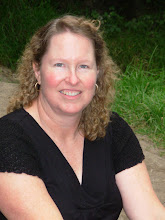
In the last update I promised to tell more about movement in the community. When I returned from the US in July 2010 I was anxious to get back and visit Pigulca! The community garden is still being used as a "nursery" and many more people have started home gardens. Gregorio, the community president told us that several weeks earlier a foundation from Otavalo had visited the community to donate seeds! It seems this foundation promotes vegetable gardening and also the planting of indigenous trees which help improve water collection in the soil. The main trees growing in our area are eucalyptus, which actually soak up the groundwater causing dryer soil. The foundation donated a large quantity of vegetable seeds to each family in the community as well as 500 native trees! More and more people are planting vegetables, taking advantage of the donated seeds. We are so thankful that community members had already been working on gardens before the foundation came, or else the seeds might not have been well used. In addition, we have been encouraging people to share their knowledge with one another.
Remember Maria G. from the end of the last update? When I visited her at the end of July, she told me that she no longer has to buy carrots! When she needs carrots, she just goes out to her garden and picks them. She does the same with cilantro, cabbage and Swiss chard. She is working on onions such that she will not have to purchase them either. She showed me how she has continued to extend her garden area, saying that she desires to produce enough for her family's consumption as well as some extra for sale at the market in Otavalo. NOW we are beginning to see some economic impact!
There are a couple of other exciting developments in Pigulca. Last year, when we first began to get involved in this community, everyone always mentioned how they do not have a reliable water source. They wanted us to put in a water system, but that is not really our area of expertise. However, over the last several years I have developed some friendships with folks from HCJB (mission) Water Projects. We recommended that the community fill out an application with them to help them with a potable water project. Incidentally, I got giardia (a water-borne parasite) from eating grapes washed in the community water. Yes, I know I should not have eaten them, but one of the community ladies bought and washed them just for me, and I did not want to dishonor her gift to me. Anyway, community members began the process with HCJB about a year ago, and in May the first construction was done protecting the water source located in the community. Thanks to HCJB and their summer volunteers, the community came together for a week of work protecting the source and putting in some filtration to keep it pure.
In October a group from Horizon Presbyterian Church in Greeneville, South Carolina will come to help community members begin the work of system installation. It is not clear what exactly the group will do, since that depends on what community members get done before then. They need to build a pump house since the water source is at the lowest point in the community. Water will be pumped up to a reservoir at the highest point in the community, so that will need to be built as well. Additionally, trenches will need to be dug from the pump house to the reservoir and eventually throughout the community for water delivery to individual homes. We are praying for the group and for the community members. Unity is still in short supply among community members, though it is growing.
Another exciting development regards a new savings group. For the last couple of years, Horizon PCA has been helping community families with school expenses. In an effort to reduce dependency issues and to encourage community members to encounter economic solutions, the school help will be progressively reduced over the next few years. In anticipation of the 25% reduction in the school subsidy for next year, Mike and I began talking with community members about four months ago about the possibility of beginning a saving program. On Monday August 30, we distributed the first part of this year's subsidy and once again talked with the parents about a savings group. All were very interested, so we went up on Friday (Sep. 3) and helped them go through the rule-making process to set up their savings group. We helped them think through the amount they needed to be saving, and about half of the 18 families who are participating made their first deposit at the rule-making meeting. Sunday September 5 is the first official meeting. While Mike and I will not be there, we are praying for them. The plan is to meet on Sunday afternoons at 5pm in the community house. We pray that the savings group will be one more opportunity for God's love to be demonstrated in the community. We will be there in two weeks to do an ongoing group training, which is based on Biblical principles.
I am sure I have not included everything in these last two updates, but I hope to post more as it occurs to me (and as it occurs in the next few months).





